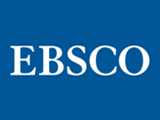
Rosetta Stone Inc. (NYSE:RST), a leading provider of education technology and language learning solutions, will soon be available to U.S. and Canadian academic and public libraries through a distribution partnership with EBSCO Information Services (EBSCO). EBSCO announced today that it will redistribute Rosetta Stone’s well-known interactive language-learning software in the U.S. and Canada.
Rosetta Stone provides cutting-edge interactive technology that is changing the way the world learns. The company’s proprietary language-learning techniques—acclaimed for their power to unlock natural language learning ability in everyone—are used by thousands of schools, businesses, government organizations and millions of individuals around the world. Founded in 1992, Rosetta Stone pioneered the use of interactive software to accelerate language learning. Today, the company offers courses in 30 languages, from the most commonly spoken (such as English, Spanish and Mandarin) to the less prominent (including Swahili, Swedish and Tagalog).
Rob Mercer, Rosetta Stone’s Vice President of Sales, Enterprise & Education, says, “This strategic partnership with EBSCO enables Rosetta Stone to better serve academic and public libraries and their constituents throughout the U.S. and Canada. We know there’s a high demand for Rosetta Stone language solutions within the library community, and by joining forces with EBSCO, we can provide these important institutions with extraordinary public access to our core language-learning technology. It is a terrifically exciting partnership for everyone involved.”
Senior Vice President of Business Development for EBSCO Information Services, Mark Herrick says the deal with Rosetta Stone allows EBSCO to serve the needs of its library customers in new and unique ways. “Rosetta Stone provides a dynamic, cutting-edge approach to language learning, and by offering courses in 30 different languages to libraries, we believe we’ll help academic and public libraries serve their end-users better and address the growing need for language education in our communities.”

























